The Bleak Post-Humanism of Blade Runner 2049
directed by Denis Villeneuve
adapted from the works of Philip K. Dick
With a budget estimated at $150 million and a lackluster initial showing at the box office, some may deem the follow-up to the classic 1982 sci-fi thriller Blade Runner directed by Ridley Scott a failure. Stop there, this film requires a bit more inspection and, at times, introspection. In Villeneuve’s portrayal one will find a visually enticing and cerebrally complex meditation. Yes, there is certainly ties to the potential impact of an unchecked grossly obscene (capitalist) society here. Yet, Villeneuve is remarkably successful in extending Scott’s mystery through a layering of past items, for instance the origami horse, that evoke past memories that are simultaneously personal and unknown while repositioning inquiry that continues to question our sense of our own humanity.
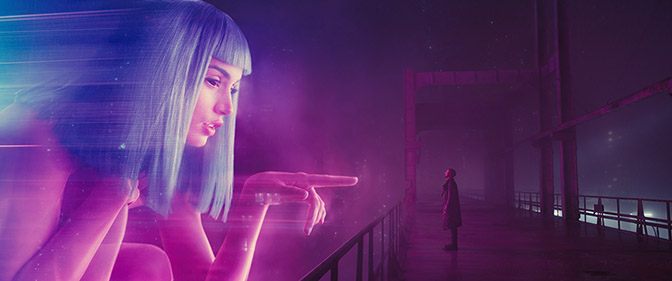
Blad Runner 2049, produced by Columbia Pictures, 2017.
At core, this film provides a platform for assessing how we interact with each other due to the influence of technology. What happens when the things we create become more human than the creator? This can be seen through considering how Agent ‘K’ (Ryan Gosling) takes on an Odyssey-like humanistic journey to seek out his own past. His relationships with humans and other A.I. develops into a maze of questions that envelopes his life while he simultaneously becomes more attached to Joi (Ana de Armas), a projection of his most desired companion. This idiosyncratic relationship is not far from our own attachment to our handheld devices and the artificial reality we create via social media and other forms of communication.
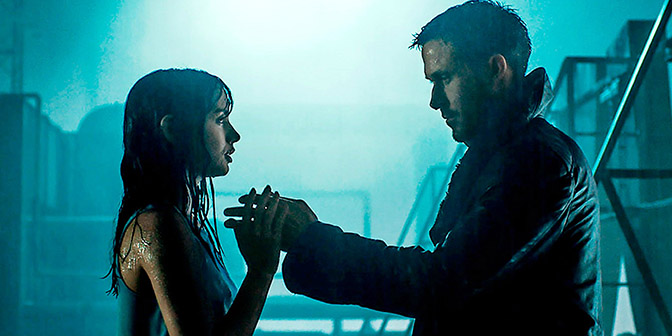
Joi and Agent ‘K’, Blade Runner 2049 directed by Denis Villeneuve.
Without doubt Blade Runner 2049 is a masterwork in terms of ocular engagement. Using the sense of place created in the original, I am most fascinated with how Villeneuve delved deeper into the metaphoric use of color. In the wasteland I felt the soot in air due to the yellow ochre field that blanketed the landscape. A coldness was achieved through the stark usage of deep grays and blacks in the chamber of Niander Wallace (Jared Leto) and other spaces that appeared to be extensions of his mega-corporation. Even in the public thoroughfares a dirtiness was enhanced via the neon and interactive signage that coated the atmosphere. At times, I was uncertain if it was ash or snowflakes that was falling as Officer “Joe” K continued his search. The absence of foliage and trees and the colors simply reminded that this is certainly not a place I care to live in.
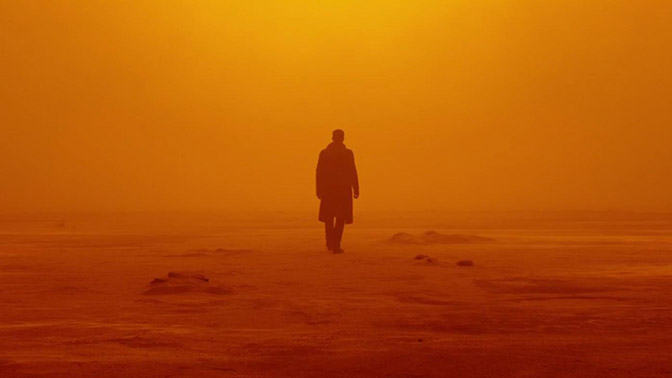
The bleak landscape of Blade Runner 2049.
With the reintroduction of Rick Deckard (Harrison Ford), Gaff (Edward James Olmos), and other neo-noir elements from the original a cycle of place, time, and memory intersect. Villeneuve understands the sublime ability of narration and piecing together key figures. He does not hold the viewer’s hand. You are required to think and work alongside Agent “K” as a detective. There are yarns that go unanswered which for some may be frustrating, but for me I see this as a means for aligning Blade Runner 2049 squarely with the original. The loose ends made me only want to watch the film again.
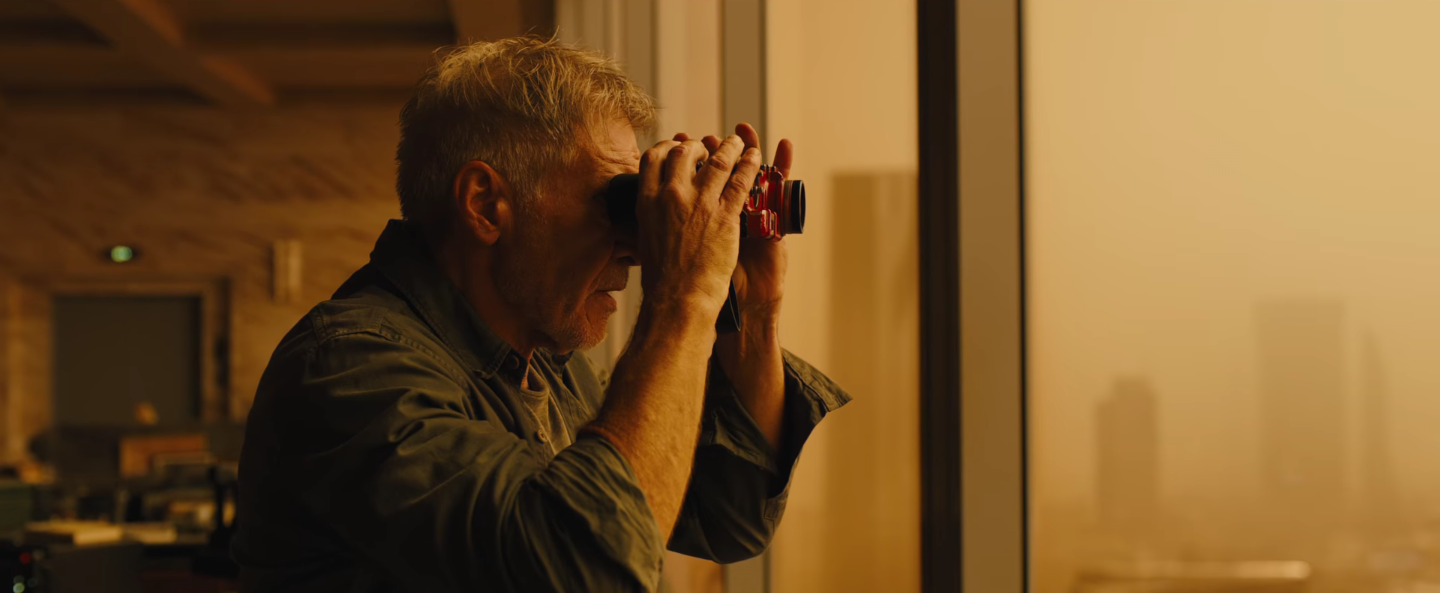
Rick Deckard (Harrison Ford) returns in Blade Runner 2049.
While in college in the late 1980s I became consumed by the works of Philip K. Dick. Aside from Bukowski I cannot think of another writer in those years that influenced the shaping of my means for looking at the world. In those abstruse times my reality moved from a linear viewing to one that became multifarious. Life became less black and white. Time no longer simply encompassed a past, present, and future. Regardless of the presented bleakness in Blade Runner 2049, I felt there was still opportunity. Now with more than a dozen film adaptations of Dick’s work completed, I see this expansion on his universe as a prompt to return those stories, reimagine my own being, and wander what time will bring.
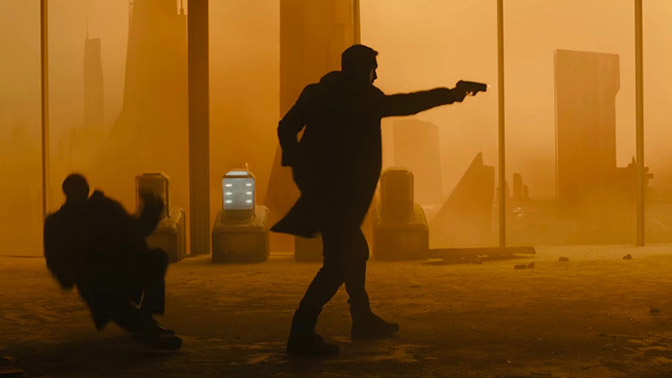
Agent ‘K’ (Ryan Gosling) in Blade Runner 2049.
Blade Runner 2049
Director: Denis Villeneuve
Screenplay: Hampton Fancher and Michael Green
Story: Hampton Fancher
Based on characters from the novel “Do Androids Dream of Electric Sheep?” by Philip K. Dick
Runtime: 164 min
Studio Release: Warner Bros. Pictures
Released: October 6, 2017
Staring: Ana de Armas, Dave Bautista, Harrison Ford, Ryan Gosling, Sylvia Hoeks, Jared Leto, Edward James Olmos, and Robin Wright
Review by Chester Alamo-Costello
All images copyright Columbia Pictures, 2017


